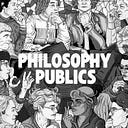The Desire For Community
How to understand the cognitive dissonance created by a growing desire for community, on the one hand, and our commitment to US-American individualism.
We have watched the price of food rise over the past months and some of us have begun to ask ourselves, “What will I do when I can no longer afford the grocery bill?” Indeed, many have started economizing already, no longer able to afford all the necessities and being forced to make tough decisions. Most of us are feeling this, I think, despite the economic indicators to the contrary. It’s dawning on us, one by one and all at the same time, that if we’re going to survive in the coming years, we are going to need each other. We will need to share knowledge about how to grow food in containers on apartment balconies, how to buy land together in remote places, how to immigrate and find community elsewhere, how to forage safely in our backwoods, or how to forge meaningful friendships in adulthood.
I know I’m not the only one experiencing this rise in the desire for community. We are starting to realize that the problems that we face in the United States and the industrialized hyper-capitalist West, cannot be dealt with on an individual basis. This has led me to think about the individualism that I cherish so much, because at first pass, it seems to be at odds with community. On TikTok, currently a leading marketplace of ideas, you will find post after post that critique and interrogate American individualism.
I’ve always been a staunch individualist. As a woman born in Latin America into a family with roots in Indigenous matriarchies, but in a culture that has patriarchy superimposed upon it through years of colonial rule and American control, I took refuge in my “feminist” version of patriarchal individualism. It has made my life possible, a life that often feels like an anomaly. It didn’t matter that “they” didn’t mean me when they said “individual rights,” that they didn’t plan for me to overhear them and take individualism to heart.
My belief in my individualism allowed me to separate myself, in my teen years and beyond, from my immediate family. Moving from Latin America to the United States helped enormously with that. When I came to the U.S., my American mother’s family was no longer a functional structure. So, in the ether of American culture I floated, dedicating myself with a lot of gusto to becoming an American — an individual with individual rights and aspirations to becoming all sorts of impossible things, including a Philosopher and feminist writer. And gosh darn it, I was going to be who I was going to be. And I did all that.
The traditional idea of community makes me uncomfy, even though I have tried to create an alternative kinship group around me. (Not very successfully, but for rather interesting reasons that I may later recount….) Where does that leave me? I both value US-American individualism and identify with the desire for an extended kinship group like a community, and these seem at odds with each other.
In the next weeks, I will be publishing to my Philosophy Publics substack some short meditations, interrogating my rather sus attachment to individualism, putting a historical and philosophical frame on it. Then I’ll turn to explore what I think is wrong with the traditional ideas of community, and what kind of alternative, extended kinship structures we need to being to imagine. Join me and my community of thinkers on substack.
